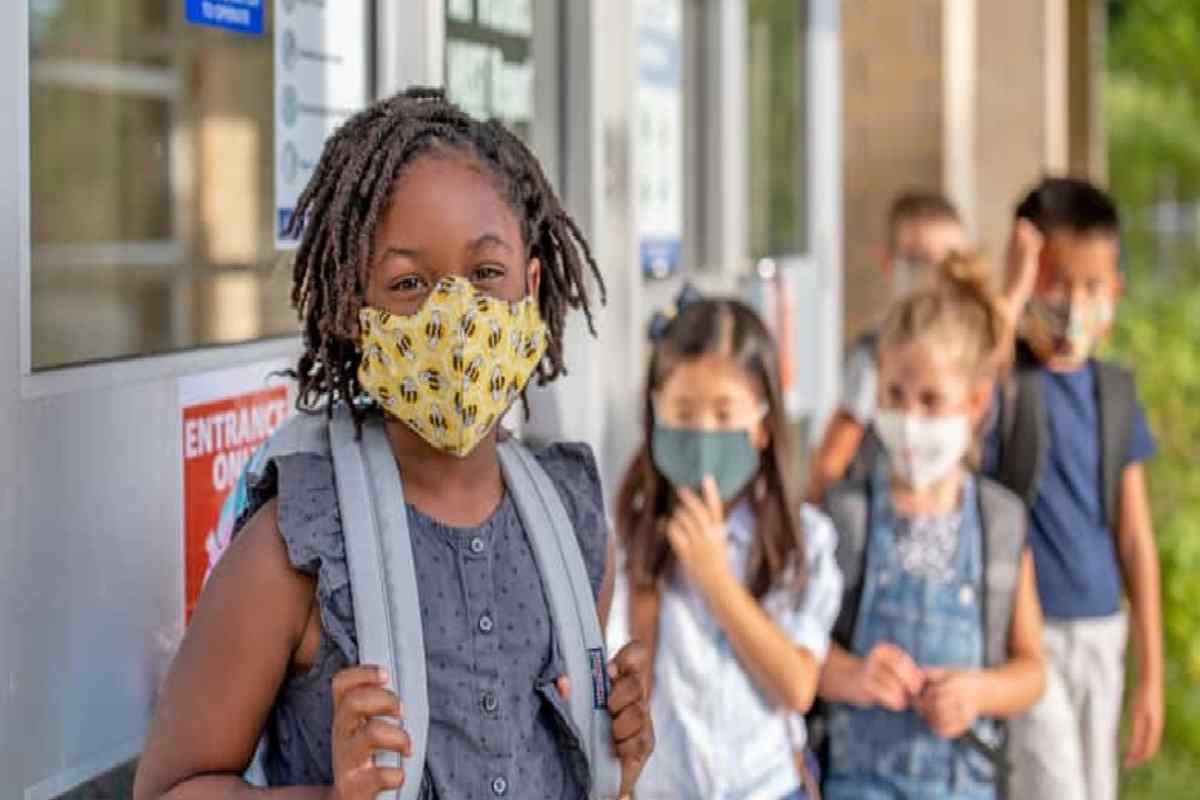The pandemic anxiety or awkwardness
Children who have grown up in COVID times face difficulty with socializing and mutual sharing. Shyness is common, and fussy behavior during playgroups or classroom programming is a given. Many don’t know what boundaries mean; they expect their caregivers to provide them with their undivided attention. Early childhood specialists advise parents and caretakers to ensure that their children learn the appropriate social norms in school and understand the importance of good interpersonal behaviors through utilizing plenty of interaction from a hyper-connected world before accepting it as usual. For these new generations to adapt smoothly, the onus is on parents and caregivers to teach crucial principles through play so that children naturally gravitate towards the right culture.
Education for pandemic babies and toddlers will be about socialization – discovering the tools necessary to communicate with people around them and finding ways to enjoy playing with others, as per Lightbridge Academy’s Gigi Schweikert. One school reported discipline issues have enormously peaked, and numerous educators and care providers from the field couldn’t agree more.
-
Handling behavior challenges in kids
Research data suggests that toddlers may suffer from externalizing (for example, aggressive) and internalizing (depression or anxiety) behavior issues. According to the early childhood research project RAPID-EC, caregivers reported increased fussy, defiant, fearful, and anxious behavioral problems in children. The study focuses on parents of children up to age five. While March 2020 indicated that nearly 31.5% of parents (less than one in three) talked about fussiness and defiance in their kids, a month later, more than 50% spoke of such occurrences.
It’s vital to realize that children understand emotion more than words. The younger ones cannot yet communicate using words, but they may share their feelings in the ways they know better, whether through their behavior or crying. And sometimes, the only thing you can do for them (because the pandemic took away everything from them) is to comfort them with a hug. The kids need a consistent routine, socialization, and parental support. But all of these got disrupted, which may have been traumatizing, especially if they didn’t have a mature and caring adult.
Hence, the good idea is to figure out the reason behind their negative behavior instead of being rude to them. It would be best if you delved into the emotions underlying their outbursts. The pandemic has been stressful for everyone, even kids, says Lauren Starnes of Goddard School. You may sense it even when you must be careful about a few things in this post-pandemic era. A case in point is the rising tendency to avoid COVID discussions during social interactions for the risk of arguments, as brought to the light by a MyBioSource survey. The study elicits more than one in three people agreeing with this.
Housman Institute’s Donna Housman suggests parents and caregivers can help kids identify and decipher their emotions. Experts recommend starting early. Some mentoring models follow emotional foundations in teaching to enable children and adults to regulate their emotions to set them up for a prosperous future.
-
Exposing kids to society
Pennsylvania’s Jamiylah Miller says there is nothing to panic about if you plan to introduce your children to a formal socializing event after the pandemic. Still, you may be worried because of your kid’s anxiety. In that case, a sensible practice can be visiting playgrounds and parks with them. Or, let them see kids they know. Nowadays, some organizations host socialization programs for kids. You can involve your little one in one of them initially.
Miller suggested that blocks could be an excellent tool for getting kids to play. By setting up a safe environment, children can begin playing alone but still, make small steps toward cooperative play. One way to facilitate this is by providing children with the same block games to build towers or other structures while maintaining a small distance between them. Such a setting may allow them to interact eventually. An adult can also casually intervene to show their amazement over the similarities of what they’re doing. You might consider rewarding them when you notice positive changes in their behavior during interactions. However, everything has to be natural and should not look enforced or imposed.
The early childhood experts also talk about simple behavioral guidance. For example, if you want to send your kid for lunch with their grandparents, let them know beforehand that they should use polite words like thank you and please. Also, appreciate them for their positive manners.
Young children soak things up – even bad mannerisms – like sponges. Take an active role in how you model good behavior for your kids. Even if it’s to keep quiet when you disagree with something or someone, pay attention to your habits and ensure that it’s what you want them to follow. COVID has been harsh on everyone, and these little wonders need some careful attention and care to walk into an ordinary world.

